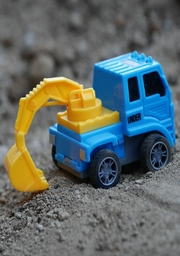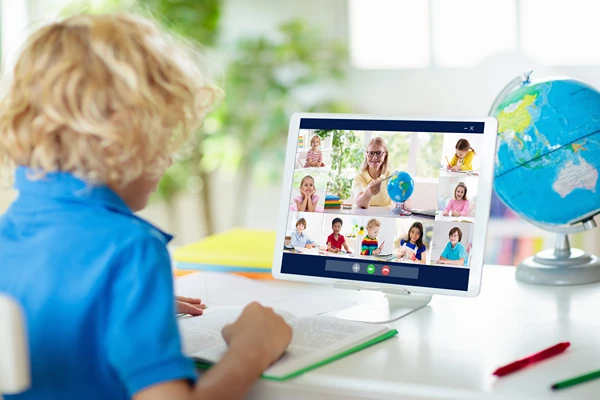Adjustable Learning Tower: Your Kitchen Helper for Safe and Fun Learning
As a parent, you want your little ones to explore, learn, and grow in a safe environment. But setting up a dedicated workspace that keeps them engaged while protecting them from potential hazards can be a daunting task.
Fortunately, an adjustable learning tower offers a practical solution. These innovative tools, designed by health professionals, not only foster independence and cognitive development but also prioritize safety.
This is just one win-win for families we’ll discover as guide you through the world of adjustable learning towers, highlighting key factors to consider when choosing the right one. We’ll also explore how these towers empower children aged 1-6 years, allowing them to participate in everyday activities and spark their curiosity.
So, get ready to unlock a world of possibilities for your little explorers!
What Are Adjustable Learning Towers?
Adjustable learning towers are a game-changer for fostering independence and growth in young minds.
Key Takeaways
- Adjustable learning towers are innovative tools designed by health professionals to foster independence and cognitive development in children aged 1-6 years while prioritizing safety.
- These versatile platforms enable children to participate in everyday activities like cooking, cleaning, or gardening, promoting sensory learning, problem-solving skills, coordination, language development, and mathematical concepts.
- When choosing an adjustable learning tower, prioritize safety by looking for sturdy construction, compliance with quality standards, and premium materials like solid wood and non-toxic finishes.
- Height adjustability is crucial, ensuring the tower grows with the child and provides an optimal vantage point for engaging in activities, boosting confidence, and cultivating a love for learning.
Benefits of Adjustable Learning Towers for Children and Parents
An adjustable learning tower sparks children’s curiosity and nurtures their independence. It transforms routine chores into educational adventures. These sturdy platforms empower toddlers – letting them safely observe and participate in kitchen activities alongside parents.
For young explorers, the learning tower becomes a versatile stage to witness, learn and grow by immersing them in real-life experiences.
Toddlers learn as they mimic adults tending to plants, cooking, or cleaning.
Sensory learning blossoms—they touch ingredients, smell aromas, and witness transformations.
Coordination improves as little hands knead dough, whisk batters or arrange toppings. Language skills advance through constant interaction—parents explain processes, name items and reinforce vocabulary.
The tower accommodates children’s growth; its adjustable height ensures an optimal vantage point as they mature. This flexibility extends its lifespan, providing an ever-evolving learning environment over years.
Resourceful parents can even repurpose it as a toddler desk, art station or reading nook.
For safety-conscious families, learning towers certified to standards offer peace of mind. Premium materials like solid wood ensure stability and longevity. Secure railings prevent falls, while the anti-slip step mat keeps explorers steady.
Easy foldability allows convenient storage when not in use.
Beyond practicality, these towers nurture family bonding. Children feel valued, included and eager to help, developing a sense of responsibility. Parents rejoice seeing their little ones blossom into confident assistants.
The tower symbolizes trust, open communication and shared accomplishments between generations.
Key Factors to Consider When Choosing an Adjustable Learning Tower
Two critical factors determine the perfect adjustable learning tower: safety and practicality. Safety ensures your child explores their independence without risks; look for sturdy construction that meets stringent standards.
Practicality revolves around adjustability; the tower should adapt as your youngster grows, providing consistent learning opportunities.
Safety Standards
Adjustable learning towers prioritize your child’s safety above all else. They comply with stringent quality standards. The towers undergo rigorous testing for stability, slip-resistance, and durability.
Premium materials, like thicker plywood, ensure uncompromising safety. The towers’ design adheres to guidelines for toddlers aged 1-6 years. This attention to detail fosters an environment of independence and growth.
With compliance as the backbone, these learning stations empower your little one. They can confidently participate in kitchen activities under your watchful guidance. Safety comes first, enabling joyful learning experiences.
Durability and Material
Most learning towers embody sturdiness. Premium materials guarantee lasting exploration. Robust plywood boards withstand energetic play. Solid wood frames provide strength. The non-toxic finishes ensure safety.
Your child’s independence blossoms.
These substantial towers transcend flimsy alternatives. Stable bases anchor the units. Rigid joints prevent wobbling. Little helpers scale these steadfast steps confidently. Design prioritizes security over flaws.
Height Adjustability
Height adjustability is a crucial feature for an optimal learning tower experience, allowing the tower to grow with your child from 18 months to 6 years old.
This versatility ensures your toddler feels like an active family member, fostering independence and growth.
Toddlers thrive on participation and exploration. With bench-top height access, they can safely engage in real kitchen activities alongside parents or caregivers. The tower’s customizable height promotes motor skill development, boosts confidence, and cultivates a love for learning through hands-on experiences.

Highlighting What a Good Model Should Offer
We highly recommend focusing on a model that has the following key features:
- Foldable so it takes up less of your space!
- Adjustable to follow your toddler’s growth
- Rounded corners and slip-resistant platform
- Optional stabilizers for extra stability
- Meets rigorous safety standards
How Learning Towers Foster Independence and Cognitive Development in Children
It is essential to explore how learning towers nurture independence and cognitive growth in children. These versatile platforms empower young minds by providing a safe, accessible environment to engage in real-world tasks.
Learning towers act as multi-purpose stations, enabling activities like painting, puppet shows, and even plant care. Through hands-on exploration, toddlers develop problem-solving abilities, spatial awareness, and coordination skills.
The adjustable height promotes self-sufficiency, allowing kids to reach countertops and participate in kitchen duties or arts and crafts. This fosters a sense of accomplishment and boosts self-confidence.
Moreover, the open-ended design sparks creativity, encouraging children to imagine, experiment, and learn through play. As they manipulate objects and materials, neural pathways strengthen, laying the foundation for future academic success.
Undoubtedly, these educational tools shape well-rounded, independent learners ready to tackle life’s challenges.
Conclusion
Adjustable learning towers help kids become independent explorers. These versatile tools grow with your child, nurturing curiosity and skills. Premium materials ensure safety while promoting hands-on learning.
Discover an engaging companion for your toddler’s developmental journey—investigate adjustable learning towers today!
FAQs
1. Why are learning towers beneficial for toddlers?
Learning towers, also known as kitchen helper stools or toddler chef stools, are innovative toys that spark children’s learning and foster independence. These solid wood adjustable learning towers allow toddlers to safely participate in the kitchen, promoting their growth and development.
2. How do learning towers ensure safety for my child?
Safety is paramount when it comes to learning towers. The best quality learning towers are safety-tested and designed with sturdy construction, toddler guards, and height adjustability to provide a safe and secure environment for your little one aged 1-6 years.
3. What are the different types of learning towers available?
Parents have a range of learning towers to choose from, including the original learning tower, foldable learning towers like, convertible learning towers that transition from tower to table, and deluxe solid wood adjustable learning towers like the Duckling model.
4. Can they be used for purposes other than kitchen activities?
Absolutely! These versatile learning tools can also serve as step stools, providing counter height access for toddlers to engage in various activities beyond the kitchen. The adjustable height makes them suitable for different tasks as your child grows.
5. How do I choose the right learning tower for my home?
When selecting a learning tower, consider factors like the tower’s height adjustability, sturdiness, and whether it’s foldable or convertible for easy storage. Additionally, check for safety certifications and choose a design that complements your home’s aesthetic. These towers are a functional addition to any home.
6. Where can I find more info about learning towers?
For detailed safety information, product specifications, and guidance on choosing the perfect learning tower for your family, visit reputable retailers or consult the websites of trusted brands like Little Partners, Little Big Learning, or Happy Helpers. Many sites provide comprehensive resources to help you make an informed decision.





 Katie Brenneman is a passionate writer specializing in education, mental health, family lifestyle and online safety. When she isn’t writing, you can find her with her nose buried in a book or hiking with her dog, Charlie. You can follow her on
Katie Brenneman is a passionate writer specializing in education, mental health, family lifestyle and online safety. When she isn’t writing, you can find her with her nose buried in a book or hiking with her dog, Charlie. You can follow her on 



